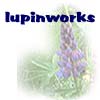|
Editorial: English Quarterly, 1992, Practice-as-Inquiry: Teachers Reflecting Critically. Vol. 24(1). Mirror, MirrorJudith M. Newman Over the last decade, as people have moved in new research directions from quantitative research toward naturalistic inquiry many new and interesting forms of research have emerged. Variously identified as teacher research, action research, reflective practice, at the heart of all of these investigative enterprises has been a common focus on practice-as-inquiry. There are wide differences of opinion about what actually constitutes practice-as-inquiry. North (1987), for example, contends practice becomes inquiry only when we identify a problem, search for possible causes and solutions, test those solutions in practice, validate our observations and then disseminate our findings. For North, the making of new knowledge requires some kind of distanced systematic investigation and is done primarily as an end in itself. The researcher (teacher) is essentially detached from practice, stands apart from it. Schön (1983, 1987), on the other hand, sees practice-as-inquiry occurring when the practitioner reflects both while engaged in action and subsequently on the action itself. For Schön, inquiry is conducted principally to inform and change ongoing practice. I've been struggling with a variety of questions about practice-as-inquiry myself of late: what is it, how does it differ from more traditional kinds of academic research, what keeps it from being mere navel-gazing or testimonial? My sense, at the moment, is practice-as-inquiry has several elements. It involves taking a critical look at some aspect of my teaching, situating the issues being examined within the larger research conversation in some way. It includes some critical reflection which attempts to answer the question "So what?" It leads to change—change in my own practice as well as change in education more generally. Practice-as-inquiry must be rooted firmly in my personal experiences in classroom, school, and community. However, exploring a particular concrete experience isn't enough to constitute practice-as-inquiry. Yes, I need to ask "What is this phenomenon or event I'm seeing?" and "How have I been thinking about it?" But I also need to connect my observations and inferences to the ongoing research conversation. My experiences don't occur in a vacuum; I need to examine what's happening within my world in the context of what other teachers/researchers are thinking. I also need to consider why a particular experience or incident is significant, what questions it raises about my instructional practices, and how it alters my assumptions about learning and teaching. It's this reflection, this turning the gaze back on myself, that characterizes practice-as-inquiry. As Schön (1983) argues
An outcome of such self-education is recognizing the tensions, conflicts, and contradictions operating within my own practice as well as in our schools and districts. But recognizing inconsistency isn't the end of practice-as-inquiry. As I learn to detect disparities between my practice and theory, I need to take action; I need to change what I do as a teacher. Engaging in practice-as-inquiry is dangerous. It forces me to see myself in unflattering ways. It makes me vulnerable to fellow teachers and administrators who don't see inquiry into practice as having any value, who don't consider it research, and who are challenged by the implications of what I uncover about learning and teaching. In this issue of English Quarterly I offer a medley of inquiries by several courageous classroom teachers and administrators. Each narrative, poem, and response is grounded in a particular experience of the teacher/researcher. The pieces are written in a variety of genres. These inquiries pose some interesting questions for us to ponder, they invite us to see contradictions in our own beliefs and practices, and they challenge us to change. North, Stephen (1987) The Making of Knowledge in Composition. Portsmouth NH: Boynton/Cook. Schön, Donald (1983) The Reflective Practitioner. New York: Basic Books. Schön, Donald (1987) Educating the Reflective Practitioner. San Francisco: Jossey-Bass Publishers. English Quarterly, vol 24, no. 1 [ Top ] [Return to Articles] |
|
© Copyright 2009, . All rights reserved. |

